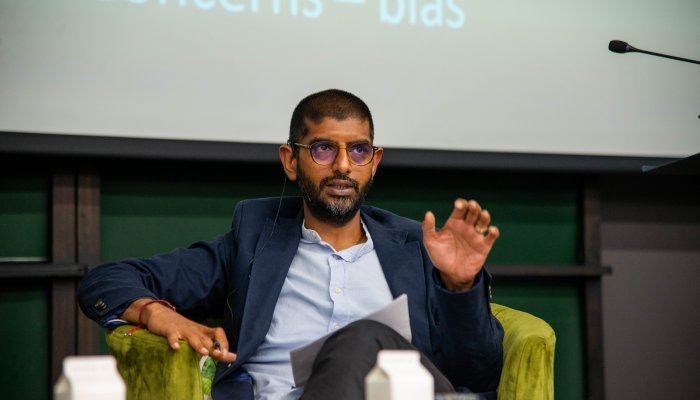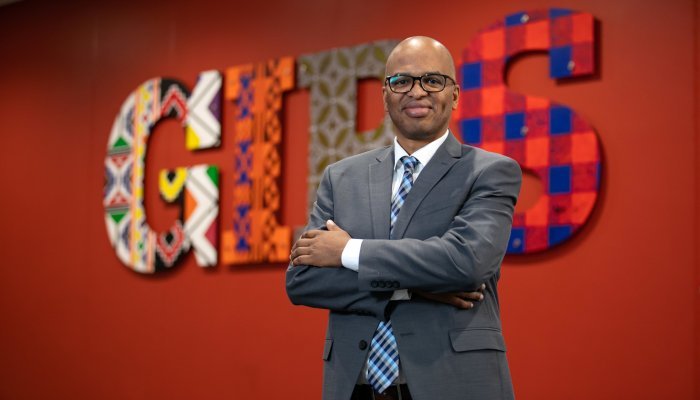Between November 2023 and March 2024, Nedbank and GIBS ran the Happiness Survey in an attempt to measure and understand how “happy” South Africans were during this time period.
The results of the largest survey of its kind, with 10 467 participants, were a testament to the resilience of South Africans , and resoundingly supported the notion that it is the time spent with people we love and doing things we find valuable that really drives happiness and well-being.
Knowing that time is a finite resource really forces us to think about how we use it. It pushes us to focus on what matters most – family, friends, interests, and passions.
The Nedbank x GIBS Happiness Survey
Time is happiness. Doing what you love, with the people you love, brings the most happiness.
The idea of seeking happiness or wellbeing is not a new one.
In Aristotelian ethics, eudaimonia is the condition of humans flourishing or living well. It is the highest human good, and is desirable for its own sake.
In the last quarter of 2023, Nedbank and GIBS set out to provide a measure of happiness among South Africans with the Happiness Survey. In order to gain an accurate measurement of well-being, the survey used elements of the Perma model, developed by the American positive psychology proponent, Dr. Martin Seligman.
In 2011 Seligman developed the well-being scale of five components that people pursue because they are intrinsically motivating and enable flourishing.
These are:
- Positive Emotion,
- Engagement,
- Relationships,
- Meaning, and
- Accomplishment.
In the International Journal of Wellbeing, Marie Forgeard found that “in well-being theory, each dimension works in concert to give rise to a higher-order construct that predicts the flourishing of groups, communities, organisations, and nations.”
Leveraging the Perma questionnaire to unpack happiness, the goal of the Project Happiness Survey, a descriptive study, was the need to understand the “happiness of individuals” within the local South African context. This was as opposed to the degree of despair, as measured by some surveys that are usually positioned as measures of hopefulness, which is antecedent to happiness.
Writing in Positive Psychology, Melissa Madeson found that“happiness can be surprisingly complex to define but we know it when we feel it. Living the good life, flourishing, self-actualisation, joy, and purpose are words that come to mind with happiness. Is it possible to experience any of these in the middle of a chaotic world and negative circumstances? Can we learn to grow or find skills that lead to this ‘good life’?”
These are the questions that also concerned GIBS and Nedbank as they contemplated their approach to happiness underpinned by the Perma methodology.
Happiness Survey findings
Overall, the results of the Nedbank x GIBS Happiness Survey indicate that individuals are “flourishing” and “flourishing a lot,” with an average score of 4.15 out of a possible 5.
However, some dimensions on the Perma scale scored better than others.
Relationships had the highest score at 4.25, while positive emotion and accomplishment recorded the lowest, with 4.01 and 4.05, respectively.
- Positive emotion includes hope, interest, joy, love, compassion, pride, amusement, and gratitude. Positive emotions are a prime indicator of flourishing. As the lowest-scoring component in comparison to all other dimensions in the survey, these characteristics seem to be lacking.
- Engagement refers to being present in the moment and focusing entirely on the task at hand. As the third-highest scoring dimension at 4.19, individuals are living in the moment.
- Relationships encompass all the various interactions individuals have with their partners, friends, family members, colleagues, bosses, mentors, supervisors, and their community at large. Relationships in the Perma model refers to feeling supported, loved, and valued by others. Relationships are included in the model based on the idea that humans are inherently social creatures (Seligman, 2012).
As relationships were the highest-scoring dimension in the survey, GIBS Associate Professor Manoj Chiba said this dimension indicated that individuals feel supported, loved, and valued. Chiba, who lectures at GIBS on research, statistics, predictive analytics, and digitisation, said, “There’s a noticeable shift towards valuing experiences over accumulating possessions. Spending time on relationships, hobbies, or passions tends to bring more lasting happiness than material goods. It’s about living those moments that make life rich and full of meaning. The true essence of happiness comes from how we choose to spend our time.” - Meaning refers to the need to have a sense of value and worth. Seligman (2012) discussed meaning as belonging and serving something greater than ourselves. Having a purpose in life helps individuals focus on what is really important in the face of significant challenge or adversity. The measure for this component in the survey was 4.20.
- A sense of accomplishment can be achieved as a result of working toward and reaching goals, mastering an endeavour, and having self-motivation to finish what you set out to do. The second-lowest score was recorded for this dimension, at 4.05. “We are not getting a sense of reaching goals, which indicated that people weren’t achieving what they set out to achieve,” Chiba said.
There was a strong correlation in the findings between employment status and overall flourishing and the dimensions.
- Entrepreneurs felt they had the lowest level of accomplishment, while those in between jobs felt they had the highest level of relationship, positive emotions, and engagement.
- Retired individuals are not flourishing, scoring an average of 3.00 for meaning, significantly lower across all categories than the other groups measured.
There was also an association between seniority and overall flourishing. Measured across the organisation, the survey found:
- Interns and new starters scored poorly on positive emotions and engagement.
- Those individuals in the upper echelons of senior management , or ‘big bosses’ scored poorly on accomplishment, indicating they are not achieving their set goals.
- However, senior management recorded the highest scores across all five categories in aggregate, and could be considered the ‘happiest’ of South Africans.
Corporate responsibility towards happiness and well-being
“In South Africa, we all have an obligation to pull together to build a better country.
The pursuit of happiness is core to that. Corporates have a huge role to play, but also a responsibility to make a better country possible,” executive head of design at Nedbank, Terry Behan said.
As a partner on the Happiness Survey, Nedbank believes that “in the context of an emerging-market economy like South Africa, you can’t be a successful company in an unsuccessful society,” he continued.
The results of the survey helped to inform the bank’s new brand campaign, #Bankyourtime, centred on the notion that time is more valuable than money.
“We believe in using our financial expertise to do good. If you can help people to better manage their money, they are going to have more time to do the things they find valuable.”
Creating a living legacy
Creating a living legacy means doing the best with the time you have available. So how do you spend that limited time? And what constitutes a meaningful legacy – is it the monetary wealth we leave behind, or the relationships, experiences and memories we create?
“We often think of legacy as something that you leave behind and are subsequently not a part of. But legacy is how you make people feel. Every touch point you have with people is an opportunity to leave your legacy. It’s this dimension of legacy that you too can be a part of and get to experience,” Dean of the Gordon Institute of Business Science (GIBS Dean), Professor Morris Mthombeni said.
As the Buddhist teaching says, “The problem is, you think you have time.”
Engagement and building meaningful connections means creating a legacy that includes more than just material wealth, but rather the impact we have on others, the love we share, and the community we build. These are the true measures of a life well lived.
The Nedbank x GIBS Happiness Survey
- The Nedbank x GIBS Happiness Survey ran between November 2023 and February 2024.
- It surveyed 10 467 participants, making it the largest happiness survey of its kind conducted in South Africa.
- The survey was conducted predominantly at OR Tambo International Airport’s domestic departures and circulated among GIBS MBA students.
- Respondents were dominated by those in the 31 – 45 age bracket.
- Full-time employed individuals comprised the highest percentage of individuals (36%) of the sample.
- 26% of respondents were in middle management
- Survey participants were measured across employment status, seniority, tenure, and age.
- The study remains a descriptive one, to enable a baseline to be created, and is intended to be repeated annually.
GIBS Dean of the Gordon Institute of Business Science (GIBS), Professor Morris Mthombeni said the GIBS Nedbank Happiness Survey “represents research that is rigorous, relevant and that has resonance. The size and the methodology of the sample speaks to rigour and uses the latest technology to measure data.”
He added that the survey is particularly relevant as it is a collaboration between business and academia to co-create insight and knowledge.
The Harvard Study of Adult Development
The Harvard Study of Adult Development is the the world’s oldest study of happiness. The longitudinal research began in 1938 with 268 Harvard sophomores and has followed these individuals and their families for nine decades.
The study, which measures the elements that help people have flourishing lives, including mental health, physical health, work life, and relationships, has shown that close relationships are what keep people happy throughout their lives and are a predictor of healthier, longer lives.
According to the Harvard Gazette: “Close ties protect people from life’s discontents, help to delay mental and physical decline, and are better predictors of long and happy lives than social class, IQ, or even genes.” The survey’s findings proved that embracing community helps us live longer and be happier.
Director of the Harvard Study of Adult Development Robert Waldinger said: “The surprising finding is that our relationships and how happy we are in our relationships has a powerful influence on our health. Loneliness kills. It’s as powerful as smoking or alcoholism.”








